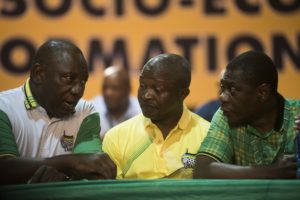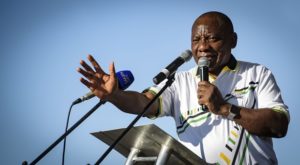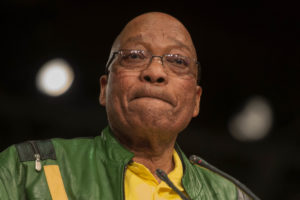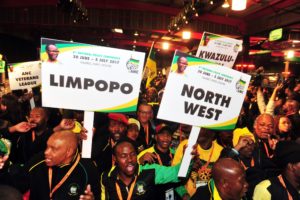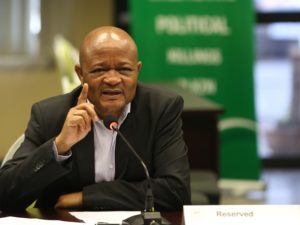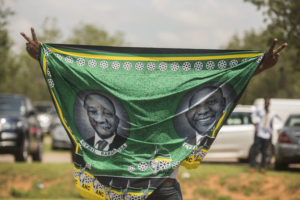Ramaphosa et al: Is the ANC serious about renewal?
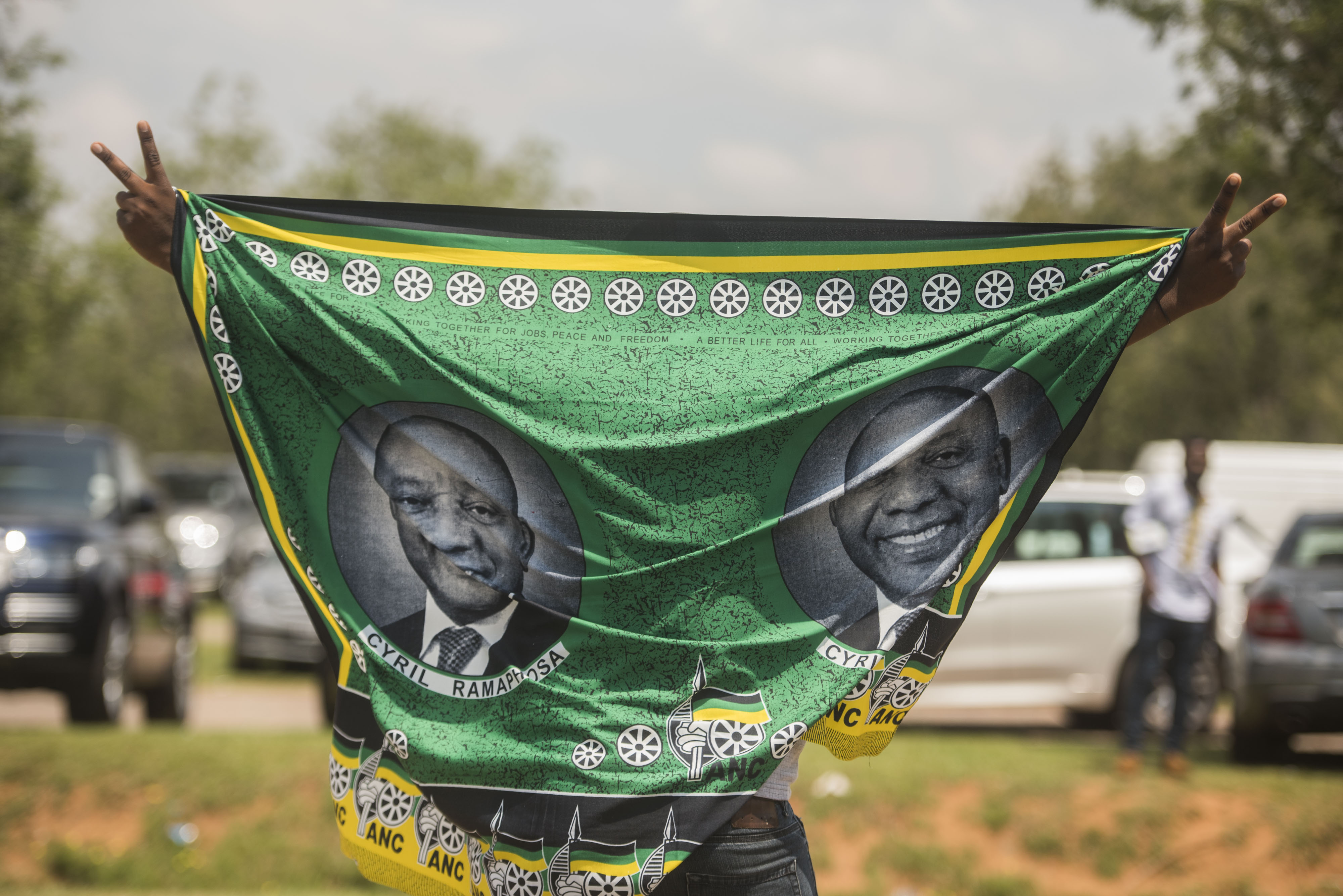
SOWETO, SOUTH AFRICA – DECEMBER 20: Delegates at the 5th African National Congress (ANC) national conference at the Nasrec Expo Centre on December 18, 2017 in Soweto, South Africa. The NEC will be announced today and new president of the ANC is expected to make a speech today. (Photo by Gallo Images / Alet Pretorius)
One would ask to be forgiven for confusing the euphoria that followed the election of Cyril Ramaphosa to the presidency of the ANC for an event all South Africans should celebrate as theirs.
After all, the rand recovered by some four cents against the US dollar before falling slightly back again, following the announcement, and a good friend who is a hardcore ANC member shared a picture of an opened bottle of Moët & Chandon next to a half-filled glass, marking a celebration of his satisfaction with the election outcome.
It is unclear whether it is the departure of Zuma as president of the ANC – a more powerful position than that of state president – that most people have taken to celebrating, or the victory of Ramaphosa over Dr Nkosazana Dlamini-Zuma, her former husband’s preferred successor.
The party leadership campaigning took place under the slogan: “Towards Unity, Renewal and Radical Socio-Economic Transformation.”
No doubt, the composition of the new party Top 6 should suffice to help the ANC avoid a feared split – at least for now – and achieve a semblance of unity, but it’s unclear if any renewal will be possible.
With people like Ace Magashule, David Mabuza and Jessie Duarte having enjoyed a close relationship with and consistently defended Jacob Zuma and his Gupta handlers, it is unclear how they will let Cyril Ramaphosa clean up the mess that came with state capture, and prepare the ANC for the 2019 elections when it will also face voters outside the party membership.
The Zuptas are still safe
If they have already begun packing their belongings to leave the country at the news that Dr Dlamini-Zuma would not be the next ANC president and continued conduit to our public resources, the Guptas may have reason to relax and stay put.
After all, their friends in the ANC’s Top 6 will make sure no one ever touches them. Going after the Zuptas would require that people like Magashule – whose two sons, Tshepiso and Thato, have been in business with the Guptas – and Mabuza are either charged as accomplices in grand theft, or subpoenaed to testify against the others in court proceedings.
Like Zimbabwean President Emmerson Mnangagwa to the north of the Limpopo, the new ANC president is unlikely to let crime investigators and prosecutors loose on the Zuptas without having his implicated co-leaders – and possibly his party – also called to account for their own roles in aiding, abetting and possibly benefiting from the Zupta-led state capture.
His co-leaders in the Top 6 and new national executive committee – which is also filled with individuals who should be criminally investigated for complicity in state capture – will not let this happen. In fact, they’re also unlikely to allow their new president to remove Zuma before the end of his term – but this remains to be seen.
Reputational renewal requires convincing corrective action
The ANC still has to convince broader South African society of its readiness to respond to the issues that matter to them. These include legal action against people in government and state-owned entities for enabling state capture and other forms of corruption, as well as the introduction of political and economic policies that will help South Africa credibly and sustainably recover lost reputational fortunes so that it can begin to build the much-touted inclusive economy.
Broader South African society is unlikely to be satisfied by the mere departure of Jacob Zuma. It is a start, of course, but not enough. They know that the cancer of which he was the initial carrying cell has long since metastasised within the party, and affected most of what it has touched in recent years.
They want to know that the principle of equality before the law still applies, and that the country’s criminal investigators and prosecutors will be allowed to act without fear or favour in pursuing those who have facilitated and benefited from the grand theft of tens of billions of rand from the public purse.
Several such people still occupy Cabinet positions. Their continued presence in those positions, particularly because they were appointed by the Guptas, not the ANC, will make it hard for any new interventions to seem genuine.
Opportunity costs for South Africa have been massive, and we’re still counting. These are some of the key elements of renewal the ANC must convince South Africans it is serious about; not the embracing of suspected criminals in its leadership structures in the name of unity.
Hypocritical ANC delegates
Going by the levels of applause in the conference hall when the likes of Ace Magashule, David Mabuza and Jessie Duarte were named as successful candidates, it is clear that the ANC delegates did not care about connecting the dots between state capture and the role played by these implicated enablers, defenders and beneficiaries in the grand theft it constitutes.
It is totally baffling to see people – who have been complaining about the well documented effects of state capture on the ability of government and state-owned entities to deliver on their mandates – jump up in uncontrollable joy when the people suspected to be behind it all were elected to, supposedly, take their movement into the future.
So, going by the blatant contradictions and, dare I say, hypocrisy of the ANC delegates, it seems safe to assume that the “renewal” part of the conference slogan was not taken seriously by any of them.
It is hard to imagine how they expect the Cyril Ramaphosa-led ANC to convince broader South African society that it has heard its cries against state capture and broader corruption, and will prove to them that it deserves another go at a general electoral win in 2019 so that it can deliver on its New Deal and radical socio-economic transformation programme.
Ramaphosa has said “yes” to becoming party president with a view to leading our country in the future; we now wait to see how he will deal with the poisoned leadership chalice that has just been handed to him by his party.
South Africa is watching.
- Solly Moeng is brand reputation management adviser and CEO of strategic corporate communications consultancy DonValley Reputation Managers. Views expressed are his own.
(Photo credit: Gallo Images / Alet Pretorius)
